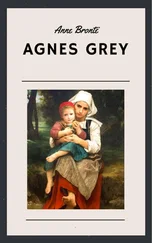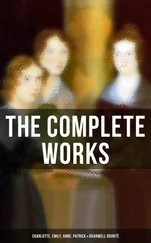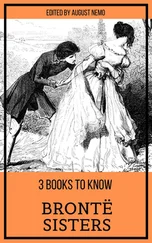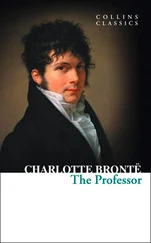Hence was I obliged to stay among these human brutes, watching an opportunity to get my child away from them, instead of leaving them immediately after the removal of the cloth, as I should always otherwise have done. He was never willing to go, and I frequently had to carry him away by force; for which he thought me very cruel and unjust; and sometimes his father would insist upon my letting him remain; - and then I would leave him to his kind friends, and retire to indulge my bitterness and despair alone or to rack my brains for a remedy to this great evil.
But here again, I must do Mr. Hargrave the justice to acknowledge that I never saw him laugh at the child's misdemeanours, nor heard him utter a word of encouragement to his aspirations after manly accomplishments. But when anything very extraordinary was said or done by the infant profligate, I noticed, at times, a peculiar expression in his face, that I could neither interpret nor define - a slight twitching about the muscles of the mouth - a sudden flash in the eye, as he darted a sudden glance at the child and then at me: and then, I could fancy there arose a gleam of hard, keen, sombre satisfaction in his countenance at the look of impotent wrath and anguish he was too certain to behold in mine. But on one occasion, when Arthur had been behaving particularly ill, and Mr. Huntingdon and his guests had been particularly provoking and insulting to me in their encouragement of him, and I particularly anxious to get him out of the room, and on the very point of demeaning myself by a burst of uncontrollable passion - Mr. Hargrave suddenly rose from his seat with an aspect of stern determination, lifted the child from his father's knee, where he was sitting half-tipsy, cocking his head and laughing at me, and execrating me with words he little knew the meaning of, - handed him out of the room, and, setting him down in the hall, held the door open for me, gravely bowed as I withdrew, and closed it after me. I heard high words exchanged between him and his already half- inebriated host as I departed, leading away my bewildered and disconcerted boy.
But this should not continue; my child must not be abandoned to this corruption: better far that he should live in poverty and obscurity with a fugitive mother, than in luxury and affluence with such a father. These guests might not be with us long, but they would return again: and he, the most injurious of the whole, his child's worst enemy, would still remain. I could endure it for myself, but for my son it must be borne no longer: the world's opinion and the feelings of my friends must be alike unheeded here, at least, alike unable to deter me from my duty. But where should I find an asylum, and how obtain subsistence for us both? Oh, I would take my precious charge at early dawn, take the coach to M -, flee to the port of -, cross the Atlantic, and seek a quiet, humble home in New England, where I would support myself and him by the labour of my hands. The palette and the easel, my darling playmates once, must be my sober toil-fellows now. But was I sufficiently skilful as an artist to obtain my livelihood in a strange land, without friends and without recommendation? No; I must wait a little; I must labour hard to improve my talent and to produce something worthwhile as a specimen of my powers, something to speak favourably for me, whether as an actual painter or a teacher. Brilliant success, of course, I did not look for, but some degree of security from positive failure was indispensable - I must not take my son to starve. And then I must have money for the journey, the passage, and some little to support us in our retreat in case I should be unsuccessful at first; and not too little either, for who could tell how long I might have to struggle with the indifference or neglect of others, or my own inexperience, or inability to suit their tastes?
What should I do then? Apply to my brother, and explain my circumstances and my resolves to him? No, no: even if I told him all my grievances, which I should be very reluctant to do, he would be certain to disapprove of the step: it would seem like madness to him, as it would to my uncle and aunt, or to Milicent. No; I must have patience and gather a hoard of my own. Rachel should be my only confidant - I thought I could persuade her into the scheme; and she should help me, first to find out a picture-dealer in some distant town; then, through her means, I would privately sell what pictures I had on hand that would do for such a purpose, and some of those I should thereafter paint. Besides this, I would contrive to dispose of my jewels - not the family jewels, but the few I brought with me from home, and those my uncle gave me on my marriage. A few months' arduous toil might well be borne by me, with such an end in view; and in the interim my son could not be much more injured than he was already.
Having formed this resolution, I immediately set to work to accomplish it. I might possibly have been induced to wax cool upon it afterwards, or perhaps, to keep weighing the pros and cons in my mind till the latter overbalanced the former, and I was driven to relinquish the project altogether, or delay the execution of it to an indefinite period, - had not something occurred to confirm me in that determination to which I still adhere, which I still think I did well to form, and shall do better to execute.
Since Lord Lowborough's departure, I had regarded the library as entirely my own, a secure retreat at all hours of the day. None of our gentlemen had the smallest pretensions to a literary taste, except Mr. Hargrave; and he, at present, was quite contented with the newspapers and periodicals of the day. And if, by any chance, he should look in here, I felt assured he would soon depart on seeing me, for, instead of becoming less cool and distant towards me, he had become decidedly more so since the departure of his mother and sisters, which was just what I wished. Here, then, I set up my easel, and here I worked at my canvas from daylight till dusk, with very little intermission, saving when pure necessity, or my duties to little Arthur, called me away - for I still thought proper to devote some portion of every day exclusively to his instruction and amusement. But, contrary to my expectation, on the third morning, while I was thus employed, Mr. Hargrave did look in, and did not immediately withdraw on seeing me. He apologized for his intrusion, and said he was only come for a book; but when he had got it, he condescended to cast a glance over my picture. Being a man of taste, he had something to say on this subject as well as another, and having modestly commented on it, without much encouragement from me, he proceeded to expatiate on the art in general. Receiving no encouragement in that either, he dropped it, but did not depart.
'You don't give us much of your company, Mrs. Huntingdon,' observed he, after a brief pause, during which I went on coolly mixing and tempering my colours; 'and I cannot wonder at it, for you must be heartily sick of us all. I myself am so thoroughly ashamed of my companions, and so weary of their irrational conversation and pursuits - now that there is no one to humanize them and keep them in check, since you have justly abandoned us to our own devices - that I think I shall presently withdraw from amongst them - probably within this week - and I cannot suppose you will regret my departure.'
He paused. I did not answer.
'Probably,' he added, with a smile, 'your only regret on the subject will be that I do not take all my companions along with me. I flatter myself, at times, that though among them, I am not of them; but it is natural that you should be glad to get rid of me. I may regret this, but I cannot blame you for it.'
'I shall not rejoice at your departure, for you can conduct yourself like a gentleman,' said I, thinking it but right to make some acknowledgment for his good behaviour, 'but I must confess I shall rejoice to bid adieu to the rest, inhospitable as it may appear.'
Читать дальше
Конец ознакомительного отрывка
Купить книгу










